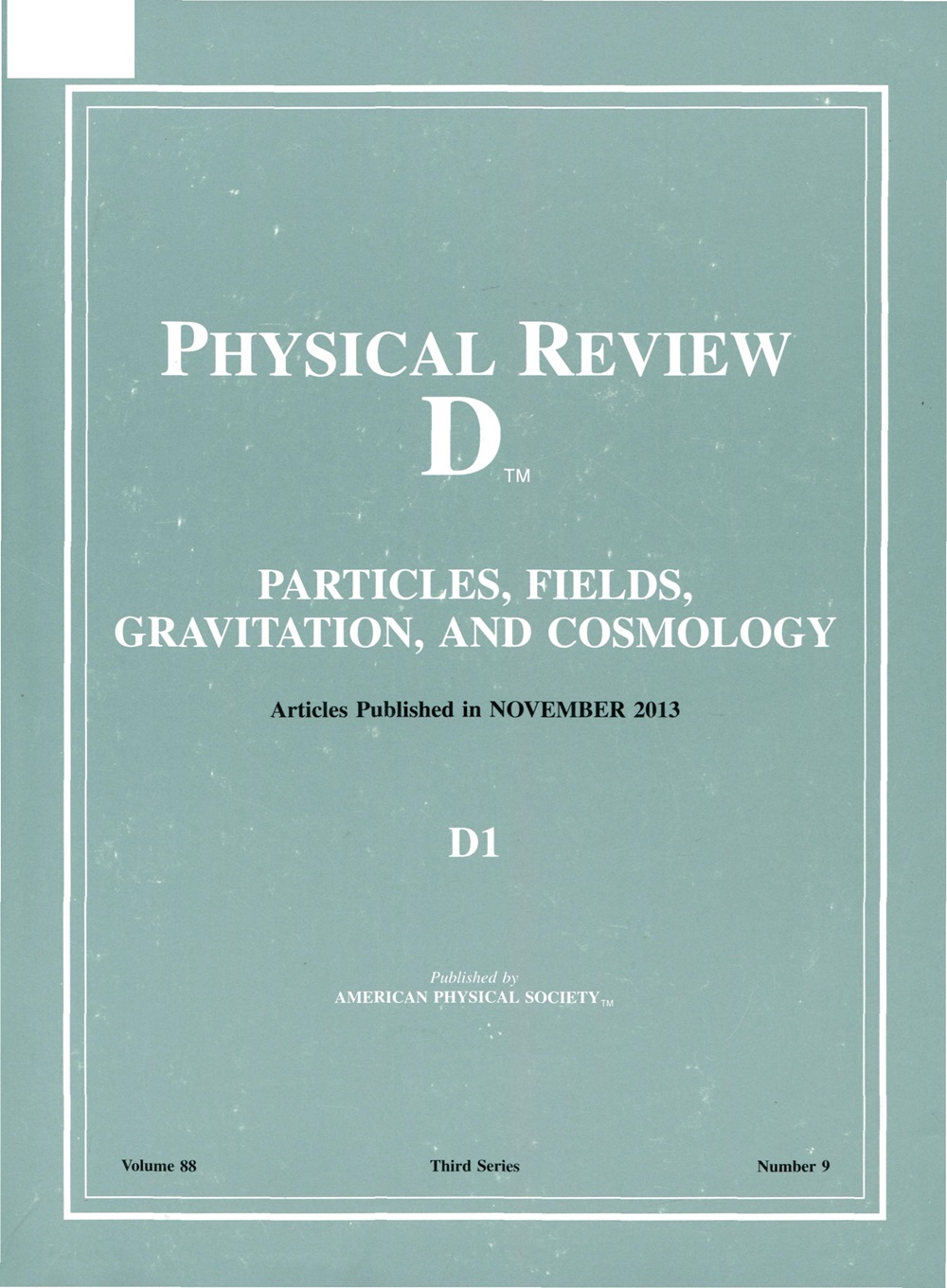连续引力波大参数空间搜索的大核卷积神经网络
IF 5.3
2区 物理与天体物理
Q1 Physics and Astronomy
引用次数: 0
摘要
宽参数空间连续引力波搜索的灵敏度受到计算成本高的限制。人们正在研究深度学习作为一种替代方法来取代CW搜索的各个方面。在之前的工作[]中,提出了新的设计原则,用于CWs的深度神经网络(DNN)搜索,并训练这些DNN以匹配过滤灵敏度执行目标搜索。在本文中,我们采用这些设计原则来构建DNN架构,用于在10天内从两个检测器(H1和L1)的数据中进行宽参数空间搜索。我们为每个基准案例训练了一个深度神经网络:在20-1000Hz的搜索频带内,在不同频率下进行6次全天搜索和8次定向搜索。我们将我们的结果与Dreissigacker和Prix[]获得的DNN灵敏度进行比较,发现我们训练的DNN在所有情况下都更敏感。在全天空情况下,探测概率的绝对改善范围从20 Hz的6.5%到1000 Hz的38%,在定向情况下,从20 Hz的1.5%到500 Hz的59.4%。在20-1000 Hz的整个搜索频带上训练的全天候深度神经网络在所有频率上都显示出高灵敏度,为训练单个深度神经网络执行整个搜索提供了概念证明。我们还研究了深度神经网络在不同信号幅值、频率下的泛化性能,以及深度神经网络灵敏度与天空位置的关系。2024年由美国物理学会出版本文章由计算机程序翻译,如有差异,请以英文原文为准。
Large-kernel convolutional neural networks for wide parameter-space searches of continuous gravitational waves
The sensitivity of wide parameter-space searches for continuous gravitational waves (CWs) is limited by their high computational cost. Deep learning is being studied as an alternative method to replace various aspects of a CW search. In previous work [], new design principles were presented for deep neural network (DNN) search of CWs and such DNNs were trained to perform a targeted search with matched-filtering sensitivity. In this paper, we adapt these design principles to build a DNN architecture for wide parameter-space searches in 10 days of data from two detectors (H1 and L1). We train a DNN for each of the benchmark cases: six all-sky searches and eight directed searches at different frequencies in the search band of 20–1000Hz. We compare our results to the DNN sensitivity achieved from Dreissigacker and Prix [] and find that our trained DNNs are more sensitive in all the cases. The absolute improvement in detection probability ranges from 6.5% at 20 Hz to 38% at 1000 Hz in the all-sky cases and from 1.5% at 20 Hz to 59.4% at 500 Hz in the directed cases. An all-sky DNN trained on the entire search band of 20–1000 Hz shows a high sensitivity at all frequencies, providing a proof of concept for training a single DNN to perform the entire search. We also study the generalization of the DNN performance to signals with different signal amplitude, frequency, and the dependence of the DNN sensitivity on sky position. Published by the American Physical Society 2024
求助全文
通过发布文献求助,成功后即可免费获取论文全文。
去求助
来源期刊

Physical Review D
物理-天文与天体物理
CiteScore
9.20
自引率
36.00%
发文量
0
审稿时长
2 months
期刊介绍:
Physical Review D (PRD) is a leading journal in elementary particle physics, field theory, gravitation, and cosmology and is one of the top-cited journals in high-energy physics.
PRD covers experimental and theoretical results in all aspects of particle physics, field theory, gravitation and cosmology, including:
Particle physics experiments,
Electroweak interactions,
Strong interactions,
Lattice field theories, lattice QCD,
Beyond the standard model physics,
Phenomenological aspects of field theory, general methods,
Gravity, cosmology, cosmic rays,
Astrophysics and astroparticle physics,
General relativity,
Formal aspects of field theory, field theory in curved space,
String theory, quantum gravity, gauge/gravity duality.
 求助内容:
求助内容: 应助结果提醒方式:
应助结果提醒方式:


